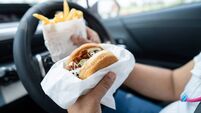Some truths about weight-loss injections like Ozempic and Mounjaro

Dr Jack Mosley: "Muscle is so important. It’s a major predictor of a long lifespan, but also health span. If you want to stay independent in later life, and be able to get about easily and to do things for yourself, it’s so important, it reduces your risk of falls." Picture: Lezli+Rose/PA
In what feels like the biggest health craze in years, weight loss jabs like semaglutide (Ozempic and Wegovy) or tirzepatide (Mounjaro) have exploded in popularity.
GP registrar Dr Jack Mosley says his father, the late BBC presenter Dr Michael Mosley, had been worried about the potential impact of the newly emerging medications.











